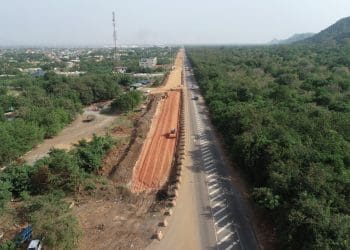A high-level visit sealed a crucial alliance for West African health security on Tuesday.
Dr. Diarrassouba Mamadou, Executive Director ECOWAS Regional Centre for Surveillance and Disease Control (ECOWAS-RCSDC) paid a working visit to the Center for the Study of Severe Infectious Pathogens (CEPRIS) in Adiopodoumé.
This visit, held on the sidelines of the 2nd International Conference on Lassa Fever, symbolizes the realization of regional commitments for a collective response to epidemic threats.
Africa, severely affected by health crises such as Ebola in 2014, the COVID-19 pandemic, and the spread of the Monkeypox virus, has learned the lessons of the need for autonomy in detection and response.
The establishment of centers of excellence such as CEPRIS in Côte d’Ivoire meets this strategic imperative.
Welcomed by Professor Meité Syndou, Director of the Institut Pasteur de Côte d’Ivoire, Dr. Diarrassouba was able to appreciate the quality of the high-security infrastructure (P3 biosafety level and P4 biosafety level) currently being installed, as well as the center’s cutting-edge technological investments.
“I am deeply impressed by the work accomplished and the considerable effort made by the Ivorian government. CEPRIS is not only an asset for Côte d’Ivoire, but a regional public good,” declared the Executive Director of ECOWAS-RCSDC.
He then emphasized the credo of regional public health: “No country can fight an epidemic alone. It is through unity, solidarity, and pooled efforts that we will succeed in protecting our populations.”
This visit was also an opportunity to recognize the central role of Côte d’Ivoire, which hosts the ECOWAS Regional Biobank. This synergy between infrastructures significantly strengthens the West African health research and monitoring ecosystem.
Professor Meité Syndou, for his part, reiterated the urgent need to strengthen regional capacities in the face of the emergence of increasingly unpredictable biological threats, exacerbated by the challenges of climate change. “Faced with pathogens that know no borders, the region must equip itself with robust and interconnected infrastructure to rapidly detect, analyze, and contain them. CEPRIS is a key component of this system,” he emphasised.
Much more than a simple courtesy visit, this mission is a decisive operational step. It demonstrates ECOWAS’s commitment to relying on national centers of excellence to build a resilient and effective regional surveillance network.
This initiative embodies the path to a new era of health sovereignty in West Africa. It demonstrates that through solidarity, the sharing of expertise, and the pooling of resources, the region is equipping itself with the necessary tools to anticipate crises and ensure a safer future for its populations.












